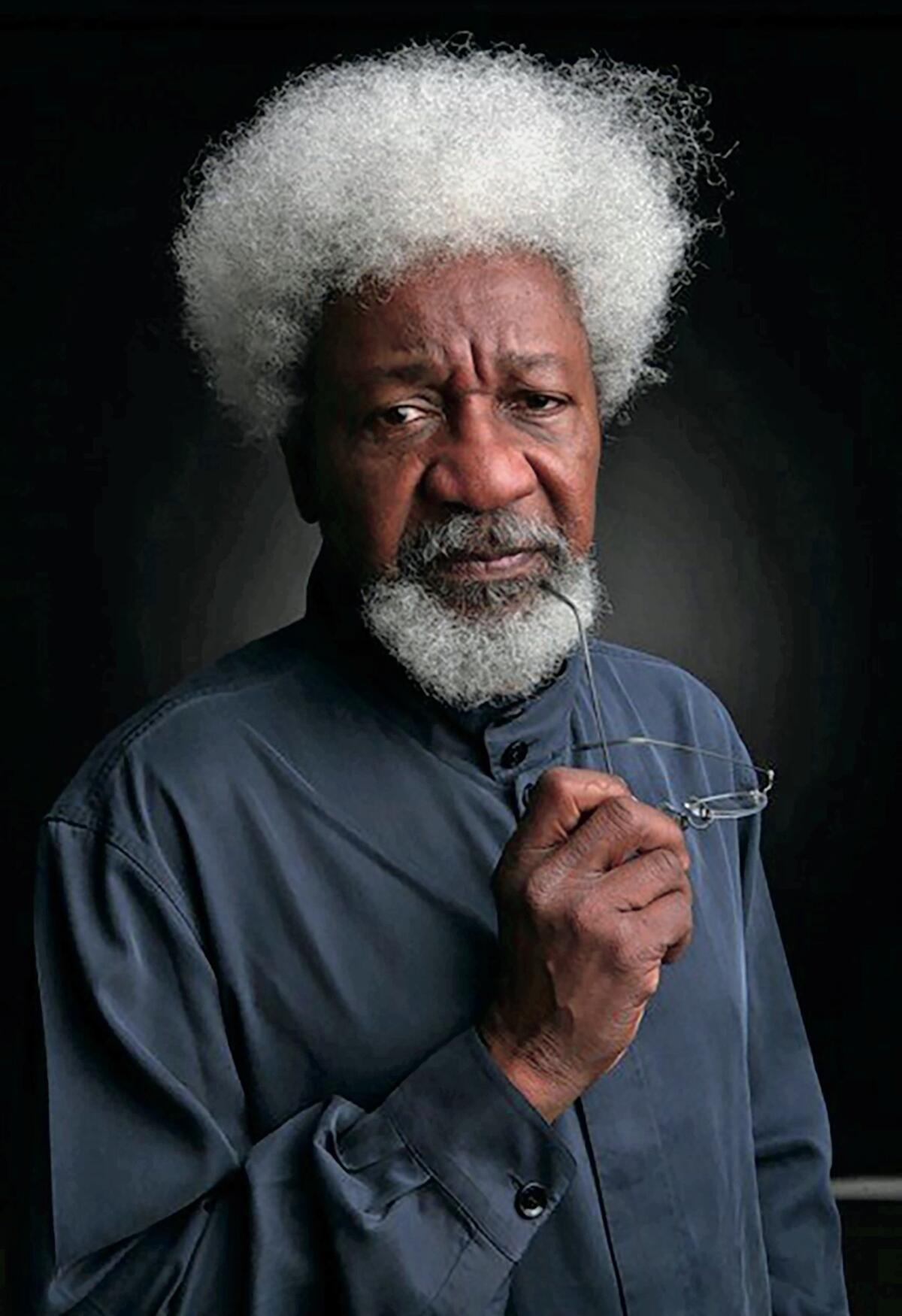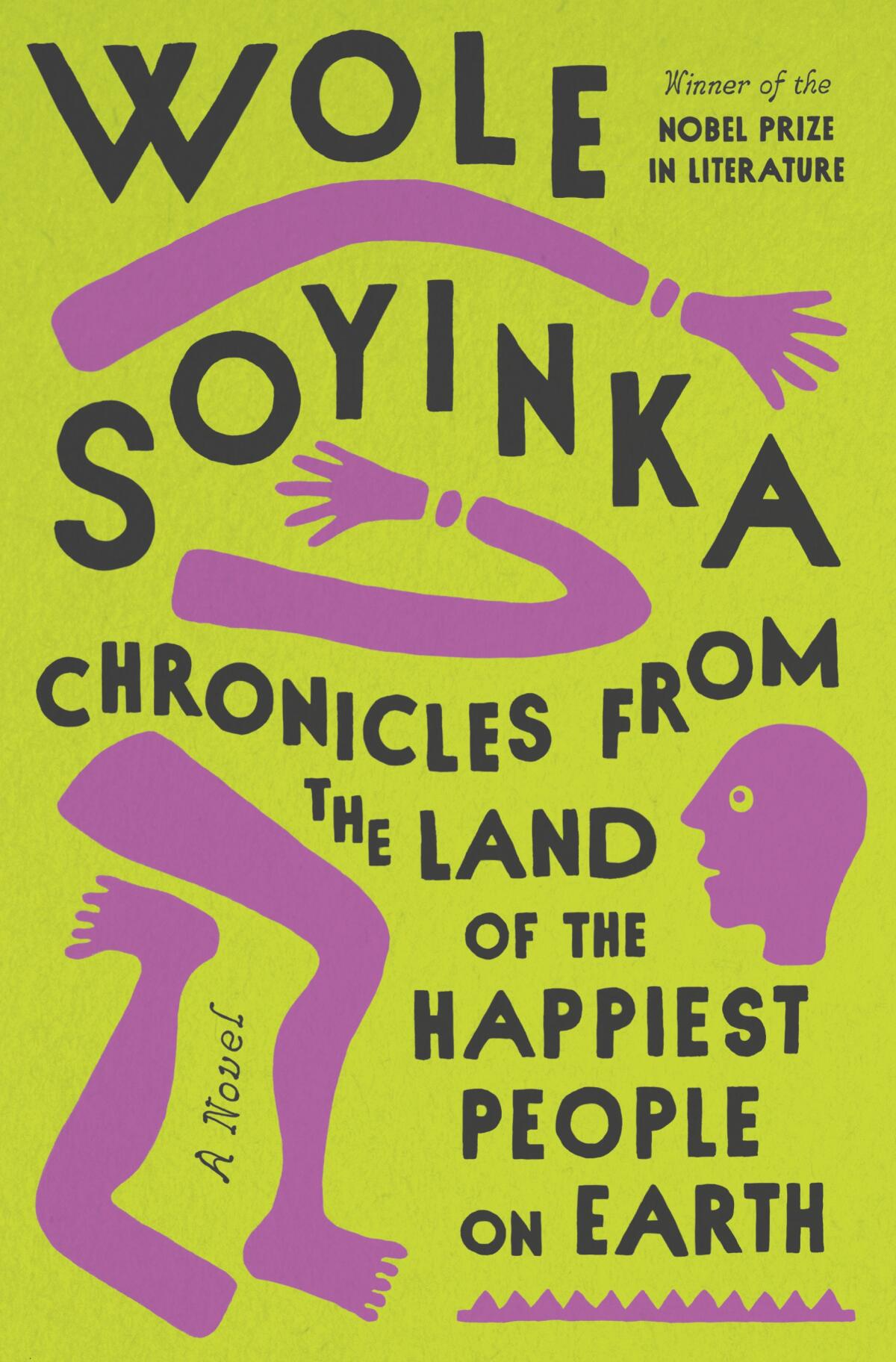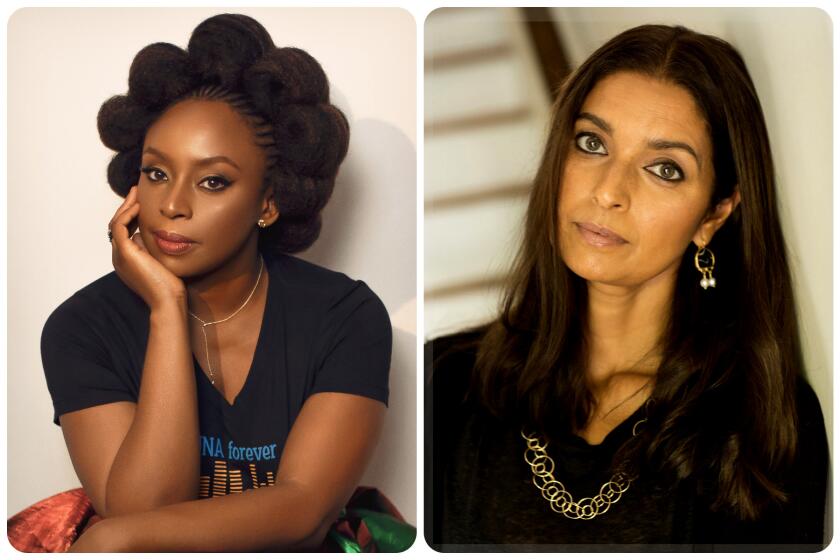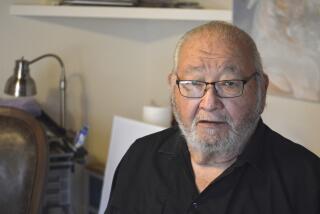‘At long last, Idunit!’ Wole Soyinka on his first novel in nearly 50 years

On the Shelf
Chronicles from the Land of the Happiest People on Earth
By Wole Soyinka
Pantheon: 464 pages, $28
If you buy books linked on our site, The Times may earn a commission from Bookshop.org, whose fees support independent bookstores.
A new work by a Nobel laureate is generally a cause for celebration, but in Wole Soyinka’s case, it’s especially significant. It’s been nearly 50 years since he published his last novel, “The Interpreters,” and though his work has spanned multiple genres — poetry, plays, memoirs and essays — his new novel, “Chronicles from the Land of the Happiest People on Earth,” manages to chart fresh territory. At 87, the first sub-Saharan author to be honored by Stockholm remains a brilliant thinker and tinkerer. “Chronicles” combines elements of a murder mystery, a searing political satire and an “Alice in Wonderland”-like modern allegory of power and deceit.
The novel picks up just as Nigeria — or the author’s stand-in for his home country — is gearing up to celebrate its annual Festival of the People of Happiness, yet another example of official doublespeak. The ruling People on the Move Party (“POMP”) have turned the country into a vast, innocuous reality show even as violence, fanaticism and ruthless plunder wreak havoc across the land. But when Dr. Kighare Menka, famous for tending to the mutilated victims of Boko Haram, stumbles upon a black market in human body parts, the nation’s ugly secrets begin to surface.
And that’s just the beginning of the conspiracies, which stretch from a charlatan preacher named Papa Divina to the president, Sir Godfrey O. Danfere. The mysterious death of Menka’s blood-brother, Duyole Pitan-Payne — who came of age with Menka during the hopeful early years of independence — tightens the web of intrigue. What did he know? Who wanted him dead? And when, exactly, did Nigeria sink so low? These and other questions — personal, moral, social and political — percolate through Soyinka’s acidly comic take on his country’s “grim contest in human desecration, physical and mental.” Soyinka spoke with The Times via email about the new book, his homeland and his own legacy.
Ngugi wa Thiong’o, the 82-year-old Kenyan author and UC Irvine professor, was inspired to write “The Perfect Nine” by the “blue vastness” of the Pacific.
I’m curious how long this book has been germinating and what about this story demanded the form of a novel.
Quite a while, certainly close to two decades. However, the themes found release in other forms, mostly polemical. Let’s say it found temporary outlet in my local interventions, both literary and political. So it had been building up in the mind. With that kind of pressure — rather like a flood behind a retaining wall — only the prose cascade seemed empowered to bear the burden of release.
Were there unexpected challenges in writing a novel again after so long?
Mostly technical. I work — like most — directly from my laptop. I am not a sequential writer, so each session does not necessarily take up the story where it left off. Now, imagine resuming work where you thought you had left your characters. The oftener you click that “save” button, the deeper you dig yourself into a hole — no, into several tunnels.
You started writing during the early days of the pandemic, outside your home in Nigeria. Was that out of necessity or preference?
No, I started work just before the pandemic. Needed to physically distance myself from the provoking environment to be able to address it, and in full isolation. Two sessions of about eight days each — one in Dakar, the other in Ghana — I needed those, to even begin. Then the pandemic locked me down in my own forested home, with just my characters for company. The heavy stuff took over, for some three or four months. Not a recommended regimen.

The title is meant facetiously, but it was inspired by an actual news report on Nigeria’s high rating on a global survey of optimism.
Sometimes, I even propose that the novel wrote itself, with the overpowering gamut of occurrences in manic vein. To encounter a report that this land, clinging to a marginal survival index, is rated high on the “happiness” scale — that scatters your brain! But, then, you also understand. Just recently, a carnival wedding party was staged. The bride was the president’s daughter, and over a hundred private jets flew in guests from every corner of the nation. I had foolishly imagined that the nation was in mourning, what with a thousand or so students still held captive by religious fundamentalist loonies and other homicidal maniacs.
This novel can be read in many ways, but, ultimately, it moves with the pace of a whodunit. Was that something you’ve wanted to try your hand at?
Always longed to write a mystery, no question about that. In secondary school, I ate up detective novels. Well, as “Chronicles” progressed, my long-repressed antennae sniffed an opening and that was it. Backtracked and did some lateral adjustments. So it’s been gratifying to receive comments of it being a kind of whodunit. At long last: Idunnit!
Wole Soyinka of Nigeria calls faith this century’s defining issue and says fundamentalism is the greatest threat to world peace and democracy.
How closely did you want to stick to the realities of present-day Nigeria and how much artistic license did you allow yourself?
Would be pointless to deny that I wanted Nigerians to recognize themselves in the work. Yes, it is consciously a J’Accuse of both power and the disempowered. And I drove my African publisher to distraction just so the work could emerge in time for Nigeria’s 60th independence anniversary last year. And guess what? The government announced that the celebrations would be spectacular and would run a full year! Mind you, the anniversary project was simply abandoned. Left to sink quietly in government sump.
You’ve been an outspoken critic of abuses of authority. You tore up your U.S. Green Card when Trump was elected in 2016. I’m interested in how you viewed the Black Lives Matter protests of this past year.
Black Lives Matter was long in coming, its tempo was merely crudely accelerated with the entry of Donald Trump and what he represented. It was psychic release. Trump was the revenge of American racism to the shock of unforgivable Obama. I hope, by the way, that “Chronicles” is seen as not simply a critique of one’s own government. It is meant to indict us also, the governed, as a people who have jettisoned the humane values that that same society impressed on my upbringing. Yes, I would give much to bludgeon Nigeria into accepting that Black Lives do Matter!
You’ve said before that winning the 1986 Nobel Prize brought with it a heavy burden — in a word, it was “hell.” But it has also given you a powerful platform. Is this something you’ve learned to embrace?
Do recall, I did have a “platform” even before the Nobel. I had and routinely exercised that voice. The Nobel, however, began to render the voice hoarse and brittle from expectations and demands. Worst of all was that I lost even my remnant shreds of anonymity. That’s the unrecognized part, and one to which I am yet to be reconciled.
As the first Black African Nobelist, you’ve also had an enormous impact on contemporary African writing. How do you think it’s changed in the past half-century?
Yes, the prize did instigate literary emulation — not imitation, thank goodness — manifested in bolder, self-assured writing among the younger African generation. That alone was gratifying. The young female writers especially.
Two big novelists take sharp turns in new books: Chimamanda Ngozi Adichie mourns in “Notes on Grief”; Jhumpa Lahiri writes a novel, “Whereabouts,” in Italian.
When you look back at your oeuvre, what works do you feel represent your greatest legacy?
No, no, I never think in terms of legacy. And I can truthfully claim that I am quite at home in any genre — from poetry to polemics. The theme calls to the medium, and one can only aspire to be a faithful conduit!
Tepper has written for the New York Times Book Review, Vanity Fair and Air Mail, among other places.
More to Read
Sign up for our Book Club newsletter
Get the latest news, events and more from the Los Angeles Times Book Club, and help us get L.A. reading and talking.
You may occasionally receive promotional content from the Los Angeles Times.







